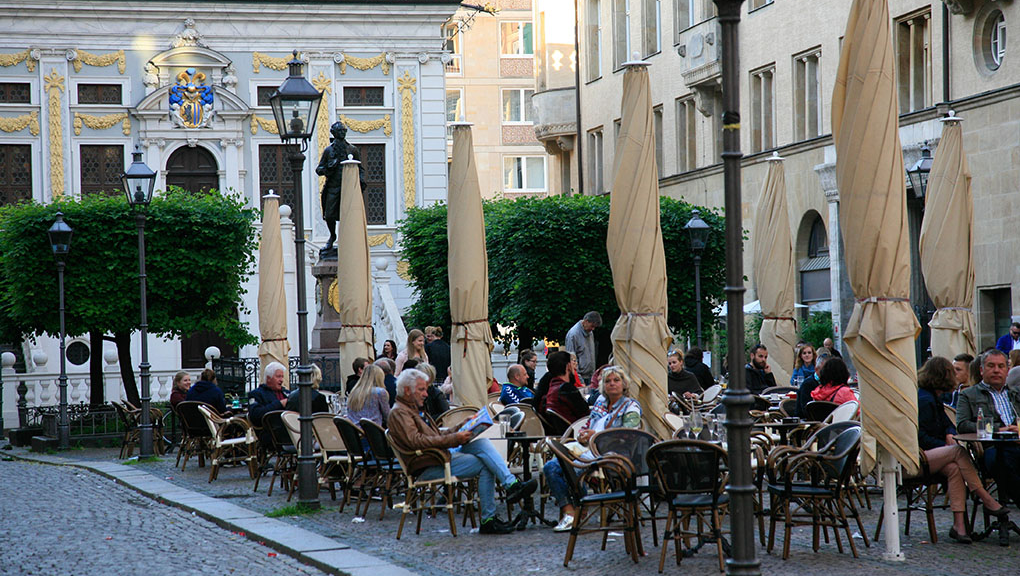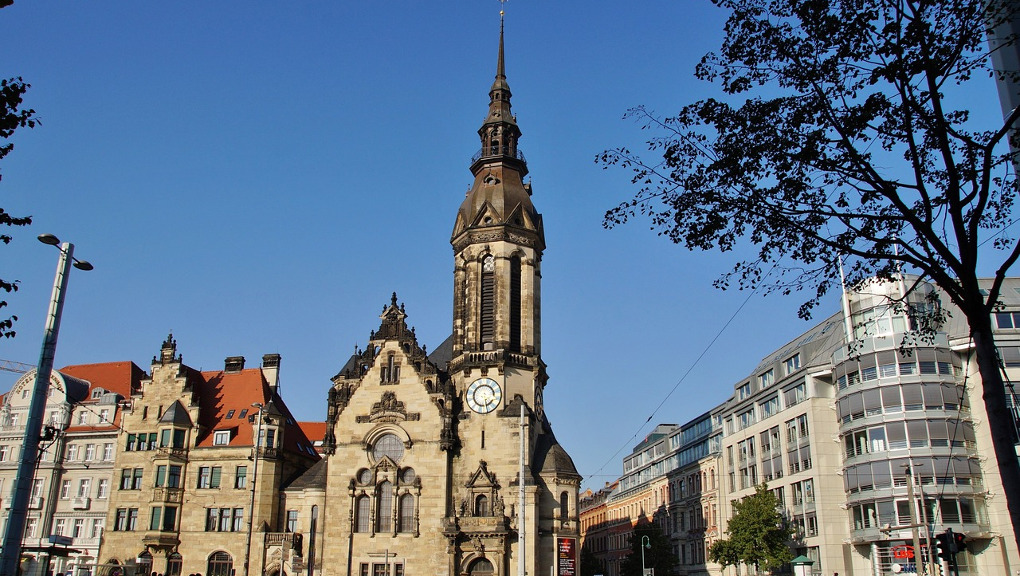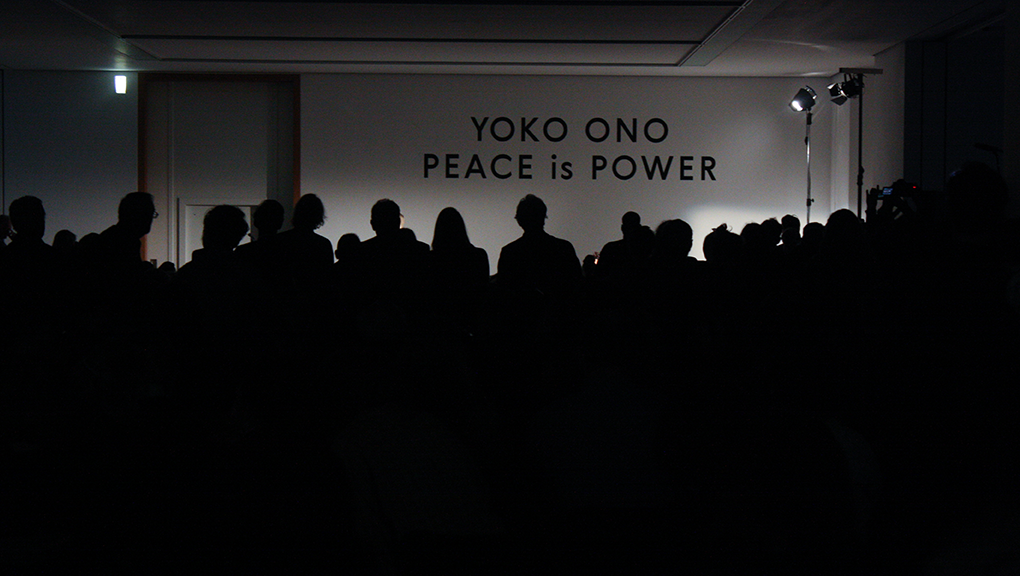Living as an immigrant is not easy. It’s even harder, of course, if you don’t know the host country’s language.
“Wie bitte?” At the physiotherapist’s office, the receptionist felt the need to over-enunciate the day of my next appointment to the point where it was just ridiculous: “D-I-E-N-S-T-A-G!” She thought that I hadn’t understood, when I really just hadn’t heard.
The post office clerk was utterly frustrated with me because I filled out the wrong form, having misunderstood where she had said the right one was. “Entschuldigung, können Sie langsamer sprechen? Deutsch ist nicht meine Sprache.” (Post office clerk cocks head to question how that could be.)
People are often just generally confused when I explain German is not my first language. These are, however, just a few of my experiences as an immigrant in Germany, and do not compare to the treatment that many other foreigners encounter.

When I was in primary school, I was often asked, “What are you?”
Apparently, I never answered the question correctly. I used to say things like, “I’m a girl” or “I’m a person,” but then some other kid would chime in with, “No, where are you from?”
“I’m from New Braunfels.” That answer also didn’t satisfy. “Well, I was born in Ohio…”
And then another kid reiterated, “yeah, but like what are you? English? French? You know, like, where’s you family from?”
I remember kids listing the fractions of ethnic history they could remember from what their parents had told them: “I’m half German, one-eighth Native American, a quarter French, and something else that I don’t remember.” It seemed like everyone was exceedingly proud of all the heritage they did know. I remember wondering why it mattered, and to this day, I’m still not convinced it does.
Times haven’t changed, though; it seems that, at the moment, that’s all anyone is talking about. “What are you?” “Where are you from?” Or more to the point:
“Do you belong here based on your ethnic, cultural, and religious background?”
My nationality is American. My skin is very pale and I am an immigrant. I grew up in south Texas, which is heavily populated with Mexican-Americans and Mexicans. Those with brown skin are largely the ones considered as immigrants there. Not only am I Caucasian, I have very fair skin with freckles, red hair and green eyes. Physically, I blend in anywhere that’s predominately inhabited by other pale “white people.” Like Germany.

I’ve been living here for four years now, and no one has ever asked me where I’m from before hearing me speak German. In fact, it’s only after I make a blatant grammar error or mispronounce something that people even consider asking where I’m from.
I’m white and I live in Germany. I must be German.
I have to say, however, that not only do I not speak the language fluently, I also find many customs and habits of German people just downright strange. Somehow, however, people don’t seem to be too bothered by my being in this country. Unfortunately, the same is not true, of course, for every immigrant here.
When I first arrived, I couldn’t string one sentence together in German, and it took many months before I could. Most of the time people were gracious enough to help me out and were patient while I fumbled with words, money, social awkwardness, and not knowing what the appropriate things to say and do were.
I have, however, become accustomed to handling money and can even get through most normal German conversations in a day with little to no confusion. In the past, though, I found myself receiving pretty strange looks in many seemingly normal situations: at a bakery or coffee shop, at the post office or on a bus.
With my poorly pronounced German words and an, “Entschuldigung, ich spreche nicht so viel Deutsch,” people looked at me like I had three heads.
I wondered why people were looking at me so oddly, and then it occurred to me that I look like I should speak German.

While shopping in the city center a few months ago, I was standing in line behind a woman wearing a headscarf. The cashier spoke to her so slowly that I felt embarrassed for her. The cashier had done that so that the customer could understand, of course. Then the woman responded in flawless German without any hint of an accent. The cashier did not speak slowly to me, however.
Seemingly it’s a normal assumption that the Muslim girl needs to be spoken to slowly and the white girl not.
A couple of years ago I was getting a ride in a car-share from Leipzig to a small town in northern Bavaria, when I found myself at a profound loss for words. The driver was a really nice guy, probably in his mid-forties, and we had bonded over classical music and traveling in the States. At some point we got onto the topic of immigrants in Germany. He asked me if I would like to stay in Germany; I answered affirmatively and he asked me why. I listed my reasons, which included not only my partner being here, but also that I’d found a job I like. Not to mention, I can actually afford healthcare here and I never worry about “what happens if.”
That kind of security is priceless. Well, actually, at the time it cost me about €176.00 a month.
The conversation went on to me being an immigrant and I explained how I am no different from any other migrant seeking a home in Germany. I added how frustrating it must be for people who are seeking asylum here in Germany, and that they should be allowed to stay based solely on the fact that there are wars and unbelievable persecution happening in their countries of origin.
I argued that neither I nor the majority of other immigrants or asylum seekers speak German, and we all have different cultures to that of Germany. My opinions did not resonate with him and he refuted, “But you come from a Christian country, they don’t. And their culture is too different. They should be in Muslim countries.” I was stunned.
Someone fleeing war has far more of a right to seek safety in a new place than I do to seek a work visa.
While waiting for a tram, walking through the city center, or eating in a restaurant, I’ve witnessed people being rude to others who do not “look like” they belong. Dark-skinned German friends tell me about the racism they’ve experienced in the place where they were born. Perpetrated by people who speak the same native language they do.
What does this mean? Is there a “right” appearance that a person should have according to where they live? Should an immigrant look a certain way before daring to cross an international border?

In the past few years, there has been a massive influx of people seeking refugee status in Germany. While those numbers have slowed, the number of international students and migrants has also increased.
Hundreds of thousands of people who currently live in Germany were not born here. They have come here for work, education, asylum, or simply following a lover they met while traveling.
Everyone has a reason to be here, and yet it seems the people who suffer the most insensitivity are those whose skin color is darker than that of the average German. Even when those people speak better German and have been living here longer than someone who looks like they belong – like me. People have been rude and impatient with me when my language skills haven’t been up to snuff, but it comes nowhere near what other immigrants have faced.
Immigrants of color and from non-Christian backgrounds are often treated in such insensitive and discriminating ways in Germany. What does that say about the daily experiences of darker-skinned German citizens who have been dealing with the same scrutiny their entire lives? Is there a correct look for an immigrant? If I were to move to Egypt, India, or China, would I experience such scrutiny and racism? Is this something to consider before moving to a new country? I surely hope not.
By Stephanie Rhoades











